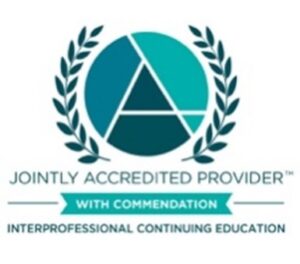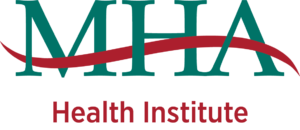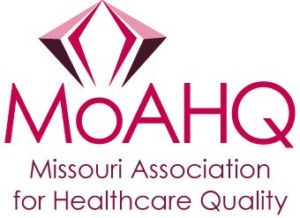Tuesday, April 2
Kick-off, Science of Improvement and TeamSTEPPS
Jessica Stultz, MHA, BSN, R.N., CPPS, CPHQ, LSSGB
Director of Clinical Quality
Missouri Hospital Association
Jefferson City, Mo.
Session Overview:
Participants will learn the science of improvement, including concepts to improve teamwork and communication.
Session Objectives:
-
- outline the concepts of a Plan/Do/Check/Act system of improvement
- explain how to conduct a brief, huddle and debrief
Tuesday, April 9
A Million Little Things: Evidence-Based Approaches to Safety and Preparedness, and Substance Use Programming
Shawn Billings, M.S.
Vice President of Substance Use Programming
Missouri Hospital Association
Jefferson City, Mo.
Robert Loseman, MSML, CHEP
Vice President of Safety and Preparedness
Missouri Hospital Association
Jefferson City, Mo.
Session Overview:
While services for the prevention and treatment of substance misuse and substance use disorders traditionally have been delivered separately from other mental health and general health care services, effective integration of prevention, treatment and recovery services across health care systems is key to addressing substance misuse and its consequences. SUDs are strongly intertwined with other medical conditions, making an integrated approach to care essential. Information shared during this presentation will include Missouri and national data on SUD prevalence, including overdoses. Current statewide initiatives and evidence-based practices that are being driven by health care systems will be highlighted, providing enhanced awareness of ongoing emergency preparedness and response efforts in Missouri. Actionable guidance about how a member organization fits within the state structure, as well as a description of the assets and resources available – and how to access them through local and health care coalition engagement – will be discussed. Additional topics addressed include workplace violence, self-harm prevention and future developments with other safety measures.
Session Objectives:
-
- examine regional, state and national data that addresses the prevalence of SUD
- discuss the evidence-based approaches, strategies and treatments that Missouri has integrated to address growing concerns around SUD
- summarize how an emergency situation impacts your facility, community or region
- examine your role and the role of your organization in an emergency situation that impacts their facility, community or region
- identify the key resources and support persons in the event of an emergency, or to move a safety-related initiative forward
Tuesday, April 16
Quality Reporting: Required, Voluntary and Leading Metrics
Jessica Stultz, MHA, BSN, R.N., CPPS, CPHQ, LSSGB
Director of Clinical Quality
Missouri Hospital Association
Jefferson City, Mo.
Session Overview:
This session provides an overview of quality measure reporting requirements and additional resources on quality reporting programs.
Session Objectives:
-
- identify key CMS quality reporting requirements and deadlines for IQR, OQR and IPF programs
Tuesday, April 23
Patient Family Engagement/Equity
Session I: PFE
12:35 to 1:15 p.m.
Liz Kruvand
Patient Experience Specialist
SSM Health Cardinal Glennon Children’s Hospital
St. Louis, Mo.
DeeJo Miller
Program Manager, Patient and Family Engagement
Children’s Mercy Kansas City
Kansas City, Mo.
Session Overview:
This session will highlight the importance of engaging patients at the bedside and explain how improving patient outcomes starts with quality improvement work in the conference room. Members of MHA’s Patient and Family Advisory Council will provide an overview and examples of how to engage Patient Family Advisors in process improvement work to affect the quality, safety and experience of care.
Session Objectives:
-
- discuss practical approaches to engage both Patient Family Advisors, and QI and patient safety teams with success
- identify common challenges for engaging patients and families as meaningful partners in safety and QI, and learn strategies to overcome them
Session II: Equity
1:15 to 1:45 p.m.
Stephen Njenga, MPH, MHA, CPHQ, CPPS, LSSYB
Director of Quality Measurement and Population Health Improvement
Missouri Hospital Association
Jefferson City, Mo.
Session Overview:
This session will highlight the importance of the accurate collection of Race, Ethnicity and Language (REal) data. It also will address the importance of using standardized tools to collect social determinants of health data and the importance of using closed-loop referral platforms. Lastly, it will show the importance of clinical-community linkages and how the community health needs assessment can be used alongside the available clinical and nonclinical data to improve the health of individuals, communities and the population served.
Session Objectives:
-
- outline the importance of segmenting quality outcomes data by Race, Ethnicity and Language as part of a strategy to promote health equity
- explain the importance of collecting both clinical and nonclinical data as a strategy to promote health for individuals and communities
Tuesday, April 30
Peer Review/Credentialing
Michael Murphy
Quality/Safety Committee Director
Missouri Baptist Hospital
St. Louis, Mo.
Session Overview:
The peer review process often is misunderstood and mistaken for the performance improvement process. While closely intertwined and sometimes overlapping, they are two separate processes. There are many reasons for credentialing and privileging practitioners, including patient protection, risk management and liability considerations, and it’s required by accrediting bodies.
Session Objectives:
-
- list the difference between peer review and performance improvement
- explain the importance of credentialing and privileging
Tuesday, May 7
Risk
Jennifer Walton, R.N., RRT, RCP
Risk Management/Claim Consultant
Healthcare Services Group
Jefferson City, Mo.
Staci Walters, R.N.
Risk Management
Healthcare Services Group
Jefferson City, Mo.
Session Overview:
Risk managers leverage the links between risk management and patient safety. Threats to patient safety are a key element of risks that health care organizations need to consider, and they must implement risk-mitigating techniques. By fostering a culture where health care providers are empowered to speak up, risk managers can use incident reports and other sources of information to manage risk, influence key decision-makers, and ultimately impact patient safety and quality care.
Session Objectives:
-
- define risk and risk management related to health care quality
- describe the process for risk management decision-making
- identify mitigation strategies for health care risk management and patient safety
Tuesday, May 14
Survey and QAPI
Hirshell Parker, MHA, BSN, LSSBB
Executive Director of Quality and Risk Management
Ste. Genevieve County Memorial Hospital
Ste. Genevieve, Mo.
Session Overview:
This session provides an overview of hospital regulatory readiness for new quality directors, including suggestions on how to prepare for a regulatory survey and elements to consider. This includes the hospital’s QAPI plan, and how to access and interpret the Centers for Medicare & Medicaid Services’ Conditions of Participation.
Session Objectives:
-
- identify suggested elements to include in the hospital’s QAPI plan
Tuesday, May 21
Quality/Finance
Andrew Wheeler
Vice President of Federal Finance
Missouri Hospital Association
Jefferson City, Mo.
Session Overview:
The presentation will cover the mandatory pay-for-performance programs for Inpatient Prospective Payment Systems and home health agencies. Information will be provided about reports that are distributed by MHA, including how they may be used to understand the programs and their effect on hospitals.
Session Objectives:
-
- examine how the mandatory Medicare pay-for-performance programs are tied to hospital payment














